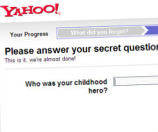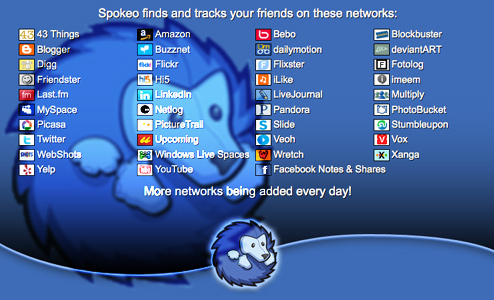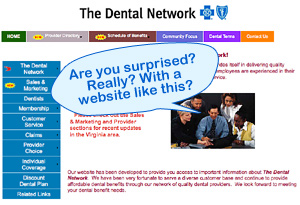There are a plethora of peer-to-peer payment options on the market, think Venmo, Facebook Payments, or Square Cash. Each offer users an easy, convenient way to transfer money between people, but many have very specific intended uses; some are for paying your friends, others are for buying goods or paying for services. Some can be used for both, but may require different accounts. It’s important to know the difference, lest you become the latest victim of a scam or simply become shut out from your account. [More]
personal

What's Your Financial Advice For A 24-Year-Old?
Andrew has a pretty good job, and not a lot of debt. Now he’s ready to start preparing for the next phase of his financial life, and he wants to know what advice Consumerist readers have for him.

Should You Detox Your Colon?
Is your colon all gummed up with old food that you can’t seem to get rid of? Well, if you think it is—probably because some advertisement told you so—there are plenty of colon detox products on the market. In the June print issue (and online), Consumer Reports looks at the possible health benefits of colon detoxing and determines that it’s not necessary, mainly because waste doesn’t build up in the intestine in a way that would require some sort of flushing in the first place.

Four Unexpected Situations Where Bad Credit Hurts
If you aren’t planning on getting a big loan in the next couple of years, you probably shouldn’t be worried about your credit score right? Wrong.

Getting Crafty For Fun Holiday Frugality
Personal finance blogger JD Roth is on a mission to help us all save a bundle during the holidays. First he shared a ton of frugal Christmas ideas, and now he’s posted a list of 34 gifts you can make yourself. A few of our favorites include:

Online 'Security Questions' Can Be Too Easy To Crack
The ease with which a student was able to reset Sarah Palin’s Yahoo email password highlights a vulnerability of so-called “challenge questions” designed to verify your identity: if the questions are about personal details from your life, there’s a risk that somewhere out there on the web, that info is visible to the public. That might be a realistic risk only for public figures, but it’s also possible that friends or family members could answer your questions with a little guesswork. If you want better security, make up fake answers that you’ll remember.

Give The Gift Of College For Your Next Birthday Party
Thanks to state-sponsored 529 plans, friends and family can finally contribute to college savings funds without drowning under long forms and boring paperwork.

Ask For A Raise At The Right Time
Personal finance blog Free Money Finance suggests that employees can improve their incomes by asking for a raise, but you have to make sure to time it right.

FreeCreditReport.com Doesn't Practice Good Security Hygiene
You’d think a credit monitoring service—even one as skeevy as freecreditreport.com—would take great pains to keep up the appearance of security and confidentiality. You’d be wrong. When Brian called to cancel their service he was asked to call out his social security number and his mother’s maiden name, even though it turned out they could easily access his account and cancel his service with only his phone number and birthday. Oh, and the first CSR hung up on him, but (sadly) that’s not really very newsworthy anymore.

Collection Agency's Server Stolen; Had 700,000 Accounts On It
Indiana broke its own record for computer security breaches last month, when a server containing personal data on 700,000 people was stolen from the offices of Central Collection Bureau, a debt collection agency. The stolen data included names, personal billing information, last known addresses, and social security numbers of people who hold delinquent accounts with a variety of companies, including utilities and hospitals. The company said the server was behind “three locked doors” and “was protected by two passwords, but was not encrypted.”

Data On Over 40,000 Patients Stolen From NYC Hospital
The New York Times is reporting this morning that an unnamed employee stole personal data on over 40,000 patients from NewYork-Presbyterian Hospital/Weill Cornell Medical Center. The theft “occurred over the past several years and included patients’ names, phone numbers and Social Security numbers.” As we’ve come to grimly expect in these cases, the hospital was made aware of the theft in January, and announced it publicly on Friday after an internal audit. “We obviously deeply regret that this has happened,” said the hospital’s spokeswoman, Ms. Manners. She also said that investigators are “looking into the possibility that the theft could be part of a larger criminal scheme.”

Identifight Tells You What Sites Your Email Address Is Publicly Linked To
Matthew wrote in to complain about a new website called Spokeo, which sounds like a stalker’s dream: it sucks up all the entries in your address book, then returns a Big Brothery smorgasbord of all the publicly accessible accounts and services linked to each email address, along with updates any time something happens. It might surprise you to see just how easy it is for someone to assemble a picture of your Internet footprint with only an email address.
Don’t like the sound of that? Luckily for you, someone has already been inspired to follow Spokeo’s model and create a tool—Identifight—that lets you track your own email address to see what shows up, so you can patch up privacy leaks.

California's Consumer Data Law Isn't Working Too Well
The “Shine the Light” law passed in California in 2005 requires all businesses to tell customers who they sell their private data to, and to provide a no-cost way to remove your name, address, and phone number from their lists. Unfortunately, it’s not being followed by more than half of the companies tested in a new report: “The California Public Interest Research Group found only one third of the survey participants received responses from companies consistent with the law.”






